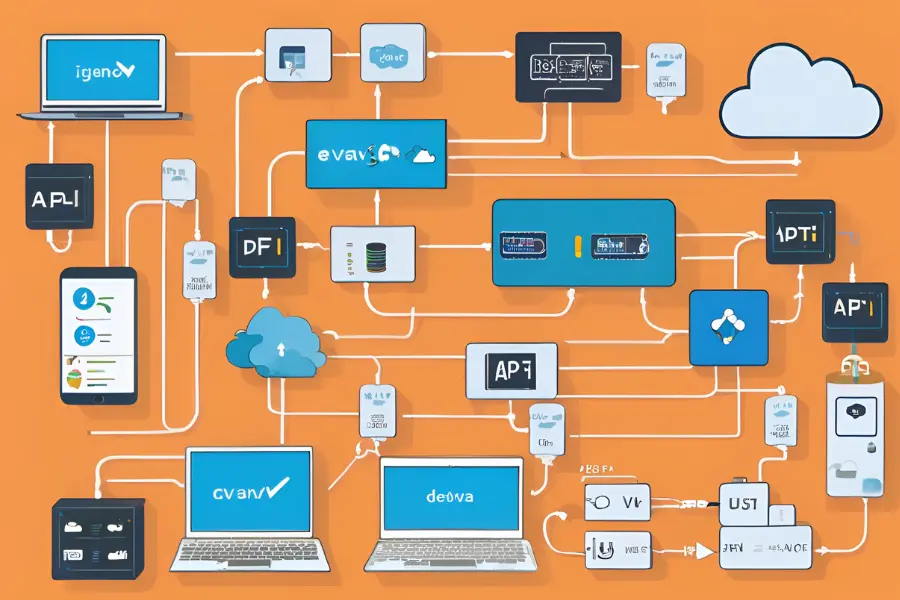Innovative IoT Applications Using JavaScript and Machine Learning
Introduction
The Internet of Things (IoT) is revolutionizing how we interact with the world, enabling everyday devices to connect and communicate over the internet. JavaScript, known for its ubiquity and versatility, plays a crucial role in facilitating this integration. This blog explores how JavaScript enables IoT device integration with cloud platforms and APIs, highlighting key technologies, frameworks, and best practices.

The Role of JavaScript in IoT
JavaScript is a powerful tool in the IoT ecosystem due to its flexibility, extensive libraries, and community support. Its usage spans from device-level scripting to server-side processing and cloud integration. JavaScript can run on microcontrollers, single-board computers, and web servers, making it an ideal choice for end-to-end IoT solutions.
Node.js: The Backbone of IoT Applications
Node.js, a JavaScript runtime built on Chrome's V8 engine, is a popular choice for IoT development. It enables developers to build scalable network applications and handle asynchronous operations efficiently, which is crucial for IoT devices that require real-time data processing and communication.
Key Features of Node.js for IoT
- Non-blocking I/O: This allows Node.js to handle multiple connections simultaneously, making it perfect for managing the numerous data streams typical in IoT environments.
- Event-driven Architecture: Node.js's event-driven nature ensures that IoT applications can react promptly to sensor inputs and other asynchronous events.
- Rich Ecosystem: The vast npm repository provides a plethora of modules and libraries specifically designed for IoT, such as Johnny-Five for robotics and node-red for wiring together hardware devices, APIs, and online services.
Connecting IoT Devices to the Cloud
To harness the full potential of IoT, devices must connect to cloud platforms where data can be stored, analyzed, and acted upon. JavaScript simplifies this process through various libraries and frameworks.
MQTT: Lightweight Messaging Protocol
MQTT (Message Queuing Telemetry Transport) is a lightweight messaging protocol designed for low-bandwidth, high-latency networks, making it ideal for IoT. JavaScript libraries like MQTT.js allow easy implementation of MQTT clients, enabling IoT devices to communicate with cloud brokers efficiently.
HTTP/HTTPS: Standard Web Protocols
JavaScript excels in making HTTP/HTTPS requests, enabling IoT devices to send data to and retrieve data from cloud services. Libraries like Axios and Fetch API simplify the process of making API calls to cloud platforms.
WebSockets: Real-Time Communication
For applications requiring real-time communication, WebSockets provide a full-duplex communication channel over a single TCP connection. JavaScript’s native WebSocket API allows IoT devices to maintain persistent connections with cloud servers, facilitating instantaneous data exchange.
Leveraging Cloud APIs
Cloud platforms like AWS IoT, Google Cloud IoT Core, and Microsoft Azure IoT Hub offer robust APIs for managing IoT devices, data ingestion, and analytics. JavaScript SDKs provided by these platforms make it straightforward to integrate IoT devices with cloud services.
AWS IoT
AWS IoT provides a comprehensive suite of tools for connecting and managing IoT devices. The AWS SDK for JavaScript allows developers to interact with AWS IoT services, enabling secure communication and data processing.
Google Cloud IoT Core
Google Cloud IoT Core offers a fully managed service to connect, manage, and ingest data from globally dispersed devices. The Google Cloud Client Library for Node.js facilitates seamless integration with IoT Core, allowing developers to leverage Google's powerful data analytics and machine learning tools.
Microsoft Azure IoT Hub
Azure IoT Hub provides reliable and secure communication between IoT applications and devices. The Azure SDK for JavaScript enables developers to build IoT solutions that can scale to millions of devices, offering extensive capabilities for device management and telemetry data analysis.
Security Considerations
Security is paramount in IoT deployments. JavaScript frameworks and libraries offer various security features to ensure data integrity and privacy. Implementing SSL/TLS for encrypted communication, using secure authentication mechanisms, and regularly updating libraries to patch vulnerabilities are critical practices for safeguarding IoT applications.
Active Events
Unlocking Lucrative Earnings: Mastering Software Engineering Salaries
Date: Feburary 25, 2025 | 7:00 PM(IST)
7:00 PM(IST) - 8:10 PM(IST)
2811 people have registered
From Zero to Hero: The Untold Secrets of Becoming a Full Stack Developer
Date: Feburary 26, 2025 | 7:00 PM(IST)
7:00 PM(IST) - 8:10 PM(IST)
2749 people have registered
Bootcamps
Full Stack Software Development Bootcamp
- Duration:4 Months
- Start Date:Feb 9, 2025
Data Science Bootcamp
- Duration:4 Months
- Start Date:Feb 9, 2025
